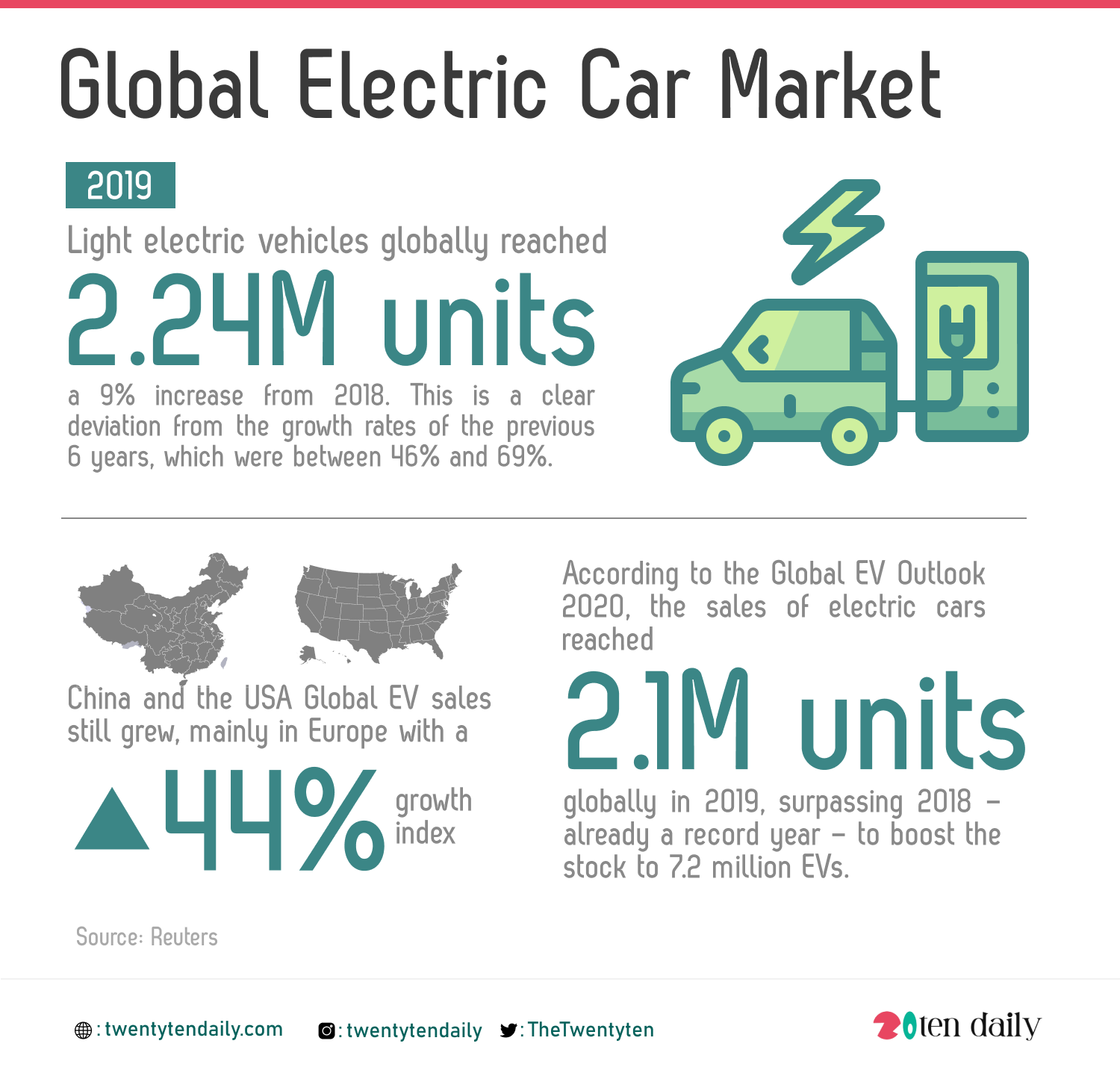Jaguar Land Rover Cars Would Be All Electric by 2025
Chief Executive, Thierry Bolloré has revealed the company will launch electric models of its entire Jaguar and Land Rover line-up by 2030.
The firm said it has dropped its earlier plans to build an electric version of its XJ saloon at the Castle Bromwich plant but it would keep all three of its British plants open as part of its new strategy.
This, however, means that the Castle Bromwich site will eventually stop making cars but would focus instead on “non-production” activities in the long term, according to Bolloré.
The company plans to spend about £2.5bn a year on new technology for its cars.
Global Electric Car Market
In 2019, the number of light electric vehicles globally reached 2, 264,400 units, a 9 percent increase from 2018. This is a clear deviation from the growth rates of the previous 6 years, which were between 46% and 69%.

Despite the stagnant growth due to the decrease in sales in the second half of 2019 in China and the USA (The two largest EV markets), global EV sales still grew, mainly in Europe with a 44% growth index. This could be attributed to the introduction of WLTP, along with changes in national vehicle taxation and grants.
However, according to the Global EV Outlook 2020, the sales of electric cars reached 2.1 million globally in 2019, surpassing 2018 – already a record year – to boost the stock to 7.2 million EVs.
UK Government Moves To Ban Sale of New Petrol and Diesel Cars by 2030
The UK has begun plans to start its contribution to climate change while boosting jobs in the process, as the Prime Minister, Transport Secretary and Business Secretary announced the end of the sale of new petrol and diesel cars in the UK by 2030. This will put the UK on course to be the fastest G7 country to decarbonise cars and vans.
Between 2030 and 2035, new cars and vans would only be sold if they have the capability to drive a significant distance with zero emissions (i.e. plug-in hybrids or full hybrids).
Jaguar Land Rover company says the new regulation puts them under pressure to reduce the CO2 emissions from its fleet.
The company also looks to invest in hydrogen fuel cell technology. Fuel cells provide electric power, without producing tailpipe emissions – water is the only by-product.
However, in order for them to be truly environmentally friendly, the hydrogen itself needs to be produced using renewable sources.
Transport Secretary Grant Shapps said the announcement was “a huge step for British car manufacturing”.
Carmakers are under pressure to meet stringent carbon emission demands in Europe and China, as well as customer demand for high-performance electric cars with a luxury or performance feel.
Luxury car brand Bentley Motors, owned by Germany’s Volkswagen, said in November its range will be fully electric by 2030, and last month General Motors said it aimed to have a zero tailpipe emission line-up by 2035.



